|
Books Should Be Free Loyal Books Free Public Domain Audiobooks & eBook Downloads |
|
|
Books Should Be Free Loyal Books Free Public Domain Audiobooks & eBook Downloads |
|
Top Authors |
|---|
|
Book type:
Sort by:
|
By: Ulysses S. Grant (1822-1885) | |
|---|---|
 Personal Memoirs of U. S. Grant
Personal Memoirs of U. S. Grant
"In preparing these volumes for the public, I have entered upon the task with the sincere desire to avoid doing injustice to any one, whether on the National or Confederate side, other than the unavoidable injustice of not making mention often where special mention is due. There must be many errors of omission in this work, because the subject is too large to be treated of in two volumes in such way as to do justice to all the officers and men engaged. There were thousands of instances, during the rebellion, of individual, company, regimental and brigade deeds of heroism which deserve special mention and are not here alluded to... | |
 Letters of Ulysses S. Grant to His Father and His Youngest Sister
Letters of Ulysses S. Grant to His Father and His Youngest Sister
Among the national leaders whose names will always hold an honorable place in American history is Ulysses S. Grant, the simple-hearted man and capable soldier, to whose patriotism, courage, persistence, and skill was so largely due the successful termination of the war between the States, the contest which assured the foundations of the Republic. We are interested not only in learning what this man did, but in coming to know, as far as may be practicable, what manner of man he was. It is all-important in a study of development of character to have placed within reach the utterances of the man himself... | |
By: L. L. Langstroth (1810-1895) | |
|---|---|
 Langstroth on the Hive and the Honey-Bee
Langstroth on the Hive and the Honey-Bee
Langstroth revolutionized the beekeeping industry by using bee space in his top opened hive. In the summer of 1851 he found that, by leaving an even, approximately bee-sized space between the top of the frames holding the honeycomb and the flat coverboard lying above, he was able to quite easily remove the latter, which was normally well cemented to the frames with propolis making separation hard to achieve. Later he had the idea to use this discovery to make the frames themselves easily removable... | |
By: Mrs Charles Bryce (1839-1920) | |
|---|---|
 The Ashiel Mystery - A Detective Story
The Ashiel Mystery - A Detective Story
Just as the adopted Juliet Byrne finds out the truth about her family, her father is murdered. Luckily the brilliant chocolate-munching Detective Gimblet takes up the case to solve the 'Ashiel Mystery' | |
By: Robert Gordon Anderson | |
|---|---|
 Seven O'Clock Stories
Seven O'Clock Stories
“Not once upon a time but just now, in a white house by the side of a road, live three happy children.Their mother and father gave them very odd names, for two old uncles and one aunt, which pleased the old people very much. Their names are all written in the big family Bible,–Jehosophat Green, Marmaduke Green, and Hepzebiah Green.” So begins this collection of bedtime stories for children, one each night for twenty days, involving these three happy children and their playmates. | |
By: Joseph Sheridan LeFanu | |
|---|---|
 Uncle Silas
Uncle Silas
Uncle Silas is a Victorian Gothic mystery/thriller novel by the Anglo-Irish writer J. Sheridan Le Fanu. It is notable as one of the earliest examples of the locked room mystery subgenre. It is not a novel of the supernatural (despite a few creepily ambiguous touches), but does show a strong interest in the occult and in the ideas of Swedenborg. | |
By: Pansy aka Isabella Alden (1841-1930) | |
|---|---|
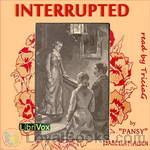 Interrupted
Interrupted
Alternately titled Out in the World. Claire Benedict is a capable, responsible, solid young Christian woman. Everyone leans on her for support and depends on her to do much that needs to be done in her church and social circle. But then her businessman father dies unexpectedly and leaves the family almost penniless, interrupting her tranquil, fulfilling life. Written by Isabella Alden under the pen name Pansy. | |
 Workers Together, or, An Endless Chain
Workers Together, or, An Endless Chain
Sixth in the Chautauqua Girls series. It picks up the characters of Dr. Stuart Everett and Joy Saunders introduced in "Ester Ried Yet Speaking" and follows them and other Christians in their work for the Master. Half-hearted and fully committed workers: all have an impact on those around them, for good or for ill. | |
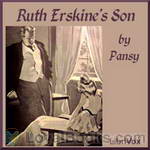 Ruth Erskine's Son
Ruth Erskine's Son
Seventh book in the Chautauqua Girls series. Written by Isabella Alden under the pseudonym “Pansy.”Erskine, Ruth's son (a 5-year-old at the end of Judge Burnham’s Daughters) is now a grown man, and Ruth is 50-something. He brings home an American wife from Paris, a woman who seems to want to tear apart mother and son. But Irene has some big secrets to hide. | |
By: William J. Burns (1861-1932) | |
|---|---|
 The Crevice
The Crevice
The sudden death of wealthy and prominent financier, Pennington Lawton from an apparent heart attack, followed by the shocking revelation of his impending bankruptcy, leaves his sole heir and only daughter, Anita, distraught and nearly penniless. Nonetheless, she is determined to unravel the mystery surrounding her father’s death and the loss of his great fortune. To this end she engages the famous detective, Henry Blaine who is determined to unravel the tangled web of deception and restore both her father’s reputation and Anita’s inheritance... | |
By: May Agnes Fleming (1840-1880) | |
|---|---|
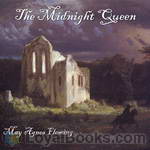 The Midnight Queen
The Midnight Queen
May Agnes Fleming is renowned as Canada's first best-selling novelist. She wrote 42 novels, many of which have only been published posthumely.The Midnight Queen is set in London, in the year of the plague 1665. Sir Norman Kingsley visits the soothsayer "La Masque" who shows him the vision of a beautiful young lady. Falling madly in love with her, he is astonished to find her only a short time later and saves her from being buried alive. He takes her home to care for her, but while he fetches a doctor, she disappears. Sir Kingsley and his friend Ormistan embark on an adventure to solve the mystery of the young lady - will they ever find her again? | |
By: F. Anstey (1856-1934) | |
|---|---|
 The Brass Bottle
The Brass Bottle
What happens when a not-so-lucky man happens upon a brass bottle and releases the djinni caught within? Misunderstanding, culture shock, hilarity, among other things. Will the well-intentioned djinni help his new master? Or will he make things even worse? | |
 Vice Versa
Vice Versa
Set in Victorian times, the novel concerns business man Paul Bultitude and his son Dick. Dick is about to leave home for a boarding school which is ruled by the cane wielding headmaster Dr. Grimstone. Bultitude, seeing his son's fear of going to the school, foolishly says that schooldays are the best years of a boy's life, and how he wished that he was the one so doing. At this point, thanks to a handy magic stone brought by an uncle from India which grants the possessor one wish, they are now on even terms... | |
By: Anstey, F. (1856-1934) | |
|---|---|
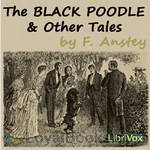 The Black Poodle and Other Tales
The Black Poodle and Other Tales
This is a collection of ten humorous short stories | |
By: F. Anstey (1856-1934) | |
|---|---|
 Baboo Jabberjee, B.A.
Baboo Jabberjee, B.A.
Another delightful example of an English writer poking fun at his countrymen, or maybe all races' reactions to someone from a diferent background. A series of adventures of a well educated foreigner in London which originally appeared weekly in Punch, sometimes with illustrations, dealing with the difficulties of fully understanding a different culture. The hero's perfect English reminds one of a quote from "My Fair Lady" ..."His English is too good, he said, "that clearly indicates that he is Foreign. Whereas other people are instructed in their native language English people aren't." | |
 Talking Horse And Other Stories
Talking Horse And Other Stories
A collection of short stories by famed humorist and Punch magazine staff member, F. Anstey, pseudonym for Thomas Anstey Guthrie. They range from humorous and whimsical to haunting and thought-provoking. | |
 Tinted Venus
Tinted Venus
When a young newly engaged man finds himself bound for an amusement garden with an old flame, not his fiancee, it is not surprising that he still feels some attraction for her. When they escape the heat of the dance floor to walk among the trees in the garden, it is not surprising that they should come upon a statue of a woman of uncommon beauty, with the smallest hands. When the young man attempts to demonstrate that his absent fiancee has hands even smaller than this immortalized stone woman, it is surprising when the engagement ring he is carrying fits easily on the stone finger, but does not easily come off... | |
 Mr. Punch's Pocket Ibsen
Mr. Punch's Pocket Ibsen
| |
 In Brief Authority
In Brief Authority
Satiric comedy from 1915 about a nouveau riche British family and their nanny who get whisked off to Maerchenland ('the land of Fairy Tales') one evening in a car drawn by storks. The matron of the family, a thorough snob, is crowned Queen of the country by mistake. She is quick to accept her new position and is determined to introduce British social niceties in her realm. And this really is the land of Fairy Tales, with gnomes, giants, a dragon, magic, a fairy godmother and more. Trouble quickly starts to brew as the royal couple and their son introduce things like capitalism and golf... | |
By: Frank Norris (1870-1902) | |
|---|---|
 McTeague
McTeague
McTeague is a simple dentist who becomes infatuated with Trina, the cousin of his friend Marcus. Trina then buys a winning lottery ticket worth $5,000, and McTeague announces his plans to marry her. But their marriage quickly falls apart as greed consumes them both, and Marcus' jealousy toward McTeague boils over. | |
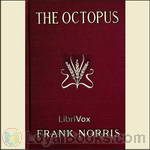 The Octopus
The Octopus
Frank Norris based his 1901 novel The Octopus (A Story of California) on the Mussel Slough Tragedy of 1880, a bloody conflict between ranchers and agents of the Southern Pacific Railroad. The central issue was over the ownership of the ranches, which the farmers had leased from the railroad nearly ten years earlier with intentions of eventually purchasing the land. Although originally priced at $2.50 to $5 per acre, the railroad eventually opened the land for sale at prices adjusted for land improvements; the railroad’s attempts to take possession of the land led the ranchers to defend themselves as depicted in the book. | |
 Vandover and the Brute
Vandover and the Brute
Vandover is a student who succumbs to a gambling addiction. This addiction causes him to divest himself of his cherished possessions and to lose his status in life, whilst his friends prosper. Eventually he is transformed by a strange degenerative lycanthropy, reduced to running back and forth across his apartment, naked, on all-fours. The novel was Norris' first, though published posthumously. Characteristically, it explores the themes of habit and addiction in a heightened "naturalistic" style. | |
By: William John Locke (1863-1930) | |
|---|---|
 The Red Planet
The Red Planet
Set during WWI in England, The Red Planet is a rich tale about the life in a little English town from the point of view of Major Duncan Meredyth, a disabled veteran of the Boer Wars. As he struggles to keep his life and the lives of those he cares for in harmony, he must also shelter a dark secret regarding one of the village's favorite sons.The Red Planet was the third bestselling novel in the United States for 1917. | |
 Beloved Vagabond
Beloved Vagabond
The vagabond, Paragot, a truly eccentric bohemian and a wandering scholar with a mysterious past, adopts a London street urchin (whom he calls Asticot) by purchasing him from his mother for half a crown. Paragot leads Asticot on various adventures through 19th century Europe, eventually arriving in Paris. Here Paragot’s dark romantic past begins to catch up with him. | |
 Morals of Marcus Ordeyne
Morals of Marcus Ordeyne
Marcus Ordeyne is a middle aged bachelor schoolmaster who has inherited both money and a title and thus is able to lead a life of leisure. One day, he encounters a young girl in a London park who has escaped from a Turkish harem and has come to London for an arranged marriage; however, her rescuer has unexpectedly died, leaving her destitute. Not knowing what else to do, Sir Marcus takes her to his home – with unexpected consequences. | |
By: Francis Lovell Coombs | |
|---|---|
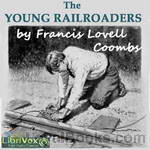 The Young Railroaders
The Young Railroaders
While aimed at youths, this series of tales of the just-opening West makes a rollicking good story for adults, too. Three teen-age boys, trained as telegraphers, manage to get themselves in and out of a wide variety of harrowing circumstances. Using their knowledge of Morse code, the science of telegraphs, and the operation of railroads, the boys stir in native resourcefulness, quick-thinking, and when the occasion demands it, raw courage – to effect rescues, thwart thieves, and solve mysteries. If Tom Swift had lived in the nineteenth century, he could not have had more exciting escapades! | |
By: William Strunk Jr. | |
|---|---|
 The Elements of Style
The Elements of Style
The Elements of Style (1918) by William Strunk, Jr. is an American English writing style guide. It is one of the best-known and most influential prescriptive treatment of English grammar and usage, and often is required reading in U.S. high school and university composition classes. The original 1918 edition of The Elements of Style detailed eight elementary rules of usage, ten elementary principles of composition, “a few matters of form”, and a list of commonly "misused" words and expressions... | |
By: Michael Shaara (1928-1988) | |
|---|---|
 Conquest Over Time
Conquest Over Time
Pat Travis, a spacer renowned for his luck, is suddenly quite out of it. His job is to beat his competitors to sign newly-Contacted human races to commercial contracts...But what can he do when he finds he's on a planet that consults astrology for literally every major decision - and he has arrived on one of the worst-aspected days in history?Michael Shaara, later to write the Pulitzer-winning novel "The Killer Angels", wrote this story for Fantastic Universe in 1956. | |
By: George Gissing | |
|---|---|
 New Grub Street
New Grub Street
The story deals with the literary world that Gissing himself had experienced. Its title refers to the London street, Grub Street, which in the 18th century became synomynous with hack literature; as an institution, Grub Street itself no longer existed in Gissing’s time. Its two central characters are a sharply contrasted pair of writers:Edwin Reardon, a novelist of some talent but limited commercial prospects, and a shy, cerebral man; and Jasper Milvain, a young journalist, hard-working and capable of generosity, but cynical and unscrupulous about writing and its purpose in the modern (i.e. late Victorian) world. | |
 In the Year of Jubilee
In the Year of Jubilee
The Jubilee marks the fiftieth year of the reign of Queen Victoria. Dickensian in its sweeping scope of London life, Jubilee depicts the harsh and disreputable conditions of lower-middle class life at the end of the 19th century. (Introduction by S. Kovalchik) | |
 The Odd Women
The Odd Women
George Gissing's 1893 novel takes on the 19th century "Woman Question" by looking at themes of feminism, marriage, and love. The novel raises these issues through the lives of several contrasting women: Mary Barfoot, a feminist philanthropist who helps train women for careers; her close friend Rhoda Nunn, who believes marriage is a disastrous choice for women; and Monica Madden, who starts out as one of their protegees but chooses to marry a seemingly kind older man. As Monica experiences the challenges of married life, Rhoda finds herself drawn to Mary's cousin, the charming but apparently profligate Everard. | |
 The Paying Guest
The Paying Guest
Clarence and Emmeline Mumford are in for a real treat when they take in the young, outspoken Miss Louise Derrick as their guest. Shedding a light on class struggles in the Victorian era, The Paying Guest offers a look at just what "proper society" expects. | |